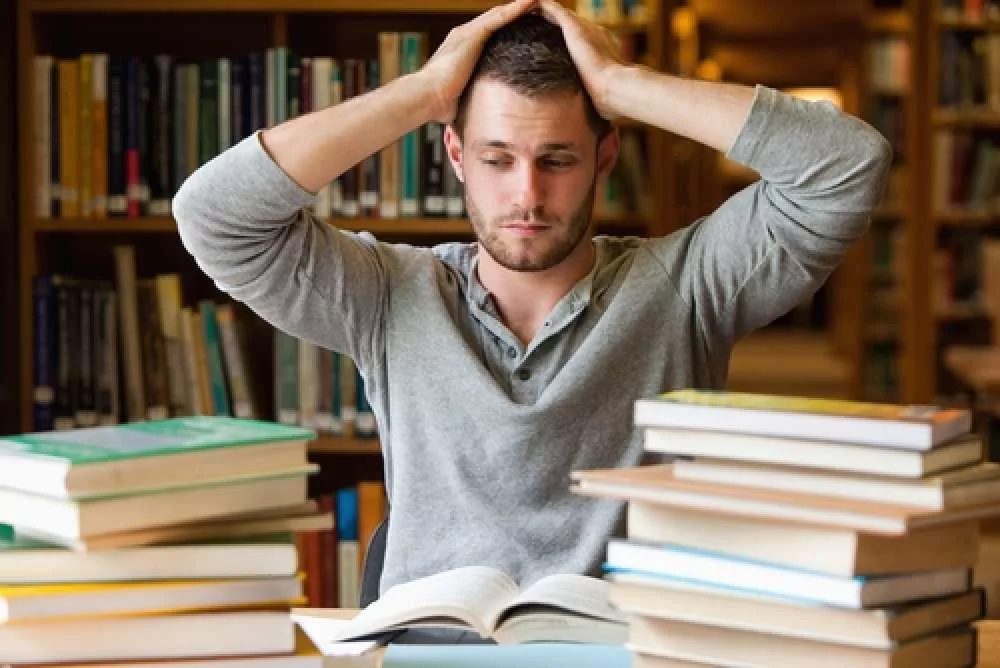A transcript of grades and GPAs often determines your future if you don’t get the chance to have an in-person interview with a school, program, or company. The pressure to impress on paper can be overwhelming and often leads students to frantically worry over school and grades.
This pressure is at its worst during exam week. Students studying for their midterms, practicals, and finals find themselves locked up in the library trying to master what seems like a lifetime’s worth of knowledge condensed into one semester. In a recently published study seen on PLOS ONE, Matthias Zunhammer from the Department of Experimental Psychology at the University of Regensburg sought to examine the effects of exam week on students. Zunhammer found that the amount of stress perceived dictated sleep quality in the students, and suggested that stress is directly related to insomnia.
Students Prepare to Take on Exams
With exams right around the corner, 142 students from two public universities in Regensburg, Germany participated in Zunhammer’s study. Students were asked to complete the following online assessments before, during, and after exams:
- German PSQI: A 9-item self-report assessing sleep quality.
- Regensburg Insomnia Scale (RIS): A 10-item scale looking for symptoms of insomnia.
- Perceived Stress Questionnaire (PSQ): A questionnaire with 20 negative and 20 positive items used to indicate perceived stress.
During exam week, the participants were asked to complete the online assessments three days prior to the test they were most stressed out about. Students also recorded how many times they consumed alcohol, caffeine (coffee, tea, energy drinks, etc.), and nicotine (cigarettes).
Sacrificing Sleep Due to Stress
During exam week, students significantly slept less, consumed more caffeine, and drank less alcohol. Zunhammer found that students did not sleep well leading up to their exams, but resumed normal sleeping schedules afterwards. Nicotine was the only variable that showed a significant negative relationship with sleep quality. Students who smoked upwards of 20 cigarettes a week showed adverse effects on their sleep quality as seen in their PSQI scores. However, only 38 students reported any smoking at all, thus making the data pool too small. When exams were over, the students showed an increase in alcohol consumption.
“The present results indicate that exam periods are a promising model setting for the study of stress-related insomnia, its consequences, and potential remedies,” notes Zunhammer. The results clearly show how drastically behaviors in students change due to exam stress and suggest a need for exam week interventions.
How much sleep do college students need?
As we grow older it becomes important for adults to get an amount of sleep each night ideally between seven to nine hours. However teenagers have a higher sleep requirement and usually need around eight to ten hours of sleep. Our natural sleep patterns are regulated by rhythms, which control our sleep wake cycles. During adolescence there is a shift in these rhythms that causes teenagers to feel tired later in the day.
Unfortunately this shift in rhythms during the teenage years coincides with school starting at earlier hours. This creates a situation where high school and college students have to wake up much earlier than their bodies naturally want to. Even if students manage to get sleep at night this disruption to their sleep schedule can have negative effects, on their mood and ability to concentrate as well as increase feelings of sadness or hopelessness.
How much sleep do college students get?
Key Concepts:
- The majority of college students, more than fifty percent, average less than seven hours of sleep over the course of a typical semester.
- During finals season, the average college student’s nightly sleep decreases to approximately 6.36 hours.
- Sleep deprivation negatively affects cognitive function, mood regulation, and increases college students’ susceptibility to conditions such as depression, weight gain, and drowsy driving.
It’s no surprise that a significant number of college students aren’t getting sleep to feel their best. Throughout a semester anywhere from 70% to 96% of college students consistently sleep less than eight hours on weeknights. Whats more over half of college students regularly get than seven hours of sleep each night and nearly half of them experience daytime sleepiness almost every day. It’s worth noting that 60% of college students meet the criteria for poor sleep quality and an additional 27% are at risk of developing a sleep disorder.
The challenging finals period amplifies the delicate balance between academic responsibilities and adequate rest. Research shows that during finals week the students nightly sleep duration drops to just 6.36 hours with less than 10% managing to achieve the recommended eight hours per night. In one study focusing on architecture students specifically most participants reported having at three all nighters per month.
During finals week it’s not the amount of sleep that suffers; there is also a decline in the overall quality due to suboptimal sleeping habits, among students.The decrease in the quality of sleep worsens due to the added stress experienced during exams. This stress often leads students to increase their consumption of stimulants, caffeine. Moreover students are exposing themselves more and more to artificial light emitted by electronic devices like computers and smartphones. This particular type of light produces a blue wavelength that tricks the brain into thinking it’s daytime disrupting our natural sleep patterns and making it harder to fall asleep.
Although some may view the sleep patterns of college students as a minor concern it’s crucial to recognize the immense significance of sleep, for overall well being. Insufficient sleep, commonly known as sleep deprivation can have consequences.
References:
Source: University of Regensburg
Matthias Zunhammer, Peter Eichhammer, and Volker Busch. Sleep Quality during Exam Stress: The Role of Alcohol, Caffeine and Nicotine. PLOS ONE, 3 October 2014; DOI: 10.1371/journal.pone.0109490





